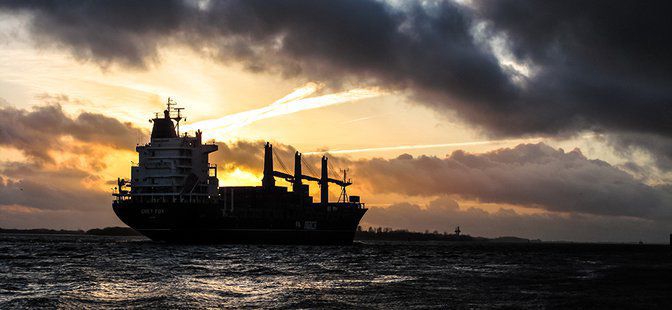
Cooperation between Turku UAS and Kongsberg accelerates development work on autonomous vehicles
Kongsberg will place at Turku University of Applied Sciences’ disposal over a million euros worth of equipment, which can be utilized to develop autonomous and remotely operated maritime traffic.
Turku University of Applied Sciences will get considerable help for its research work from the Norwegian industry conglomerate Kongsberg. Kongsberg will lend Turku UAS over a million euros worth of equipment such as different cameras, sensors and detectors.
The equipment will be utilized in Turku UAS’ research work, which collects data for the development of remotely operated, automatized and autonomous vessels. Turku UAS coordinates the project Applied Research Platform for Autonomous Systems (ARPA), which focuses on the topic at hand and was launched in the end of 2020.
The ARPA project develops test environments for autonomous and remotely operated traffic, in particular maritime traffic.
A part of the equipment was originally used when Rolls-Royce conducted the first pilots on an autonomous and remotely operated vessel on the Falco ferry in 2018. Later, the Commercial Marine operations of Rolls-Royce were sold to Kongsberg in 2019. Kongsberg has continued to strongly invest in the development of technology for autonomous and remotely operated vessels. Turku UAS’ cooperation with different companies is active.
“When preparing the ARPA project, we invited companies to discuss the development of autonomous and remotely operated vessels. After the meeting, Kongsberg approached us and suggested that we could utilize the equipment”, says Executive Lecturer and Project Manager of the ARPA project Jarkko Paavola from Turku UAS.
Turku UAS has several projects in the field of maritime industry, and ARPA is one of them. The project attracted Kongsberg’s attention, as the lent equipment fits the development work being done like a glove.
“For its part, Kongsberg wants to support local development in autonomy and remote operations. It is particularly important to ensure that students can access the necessary equipment in their projects so that the learning and results reach the best possible level. At the same time, Kongsberg finds that by investing in higher education, we promote Finnish competence and through that, competitiveness”, says Anton Westerlund, Vice President, Remote Operation Solutions, from Kongsberg.
The equipment includes e.g., thermal imaging and night-vision cameras, radars, a weather station, data-collecting sensors, a server for processing the data and wind and visibility detectors. At Turku UAs, the equipment will be placed in FIT Turku, the research centre for virtual reality and AI, and different laboratories and Turku UAS’ survey vessel.
Autonomous traffic is a timely research topic. In the future, we will witness remotely operated cargo ships and other vehicles. Before realizing these plans, data must be collected from different environments, scenarios and circumstances, so that AI will learn to operate the vehicles safely in different situations. The ARPA project develops a test environment for the collection of such data.
Jarkko Paavola describes that having the loan of the equipment at Turku UAS helps the project enormously.
“Now we have at our disposal the best that’s offered on the market, and this also raises the quality of our test environment to a whole new level. When we get to use the best equipment, the collected data is also as good as it gets”, he says.
Autonomous traffic aims at reducing accidents caused by human errors, improving the economic efficiency of the operations and supporting green thinking for example by optimizing speed.
More information:
Anton Westerlund, Vice President, Remote Operation Solutions,
KONGSBERG Maritime Finland Oy
tel. +358 40 523 7168,
anton.westerlund@km.kongsberg.com
